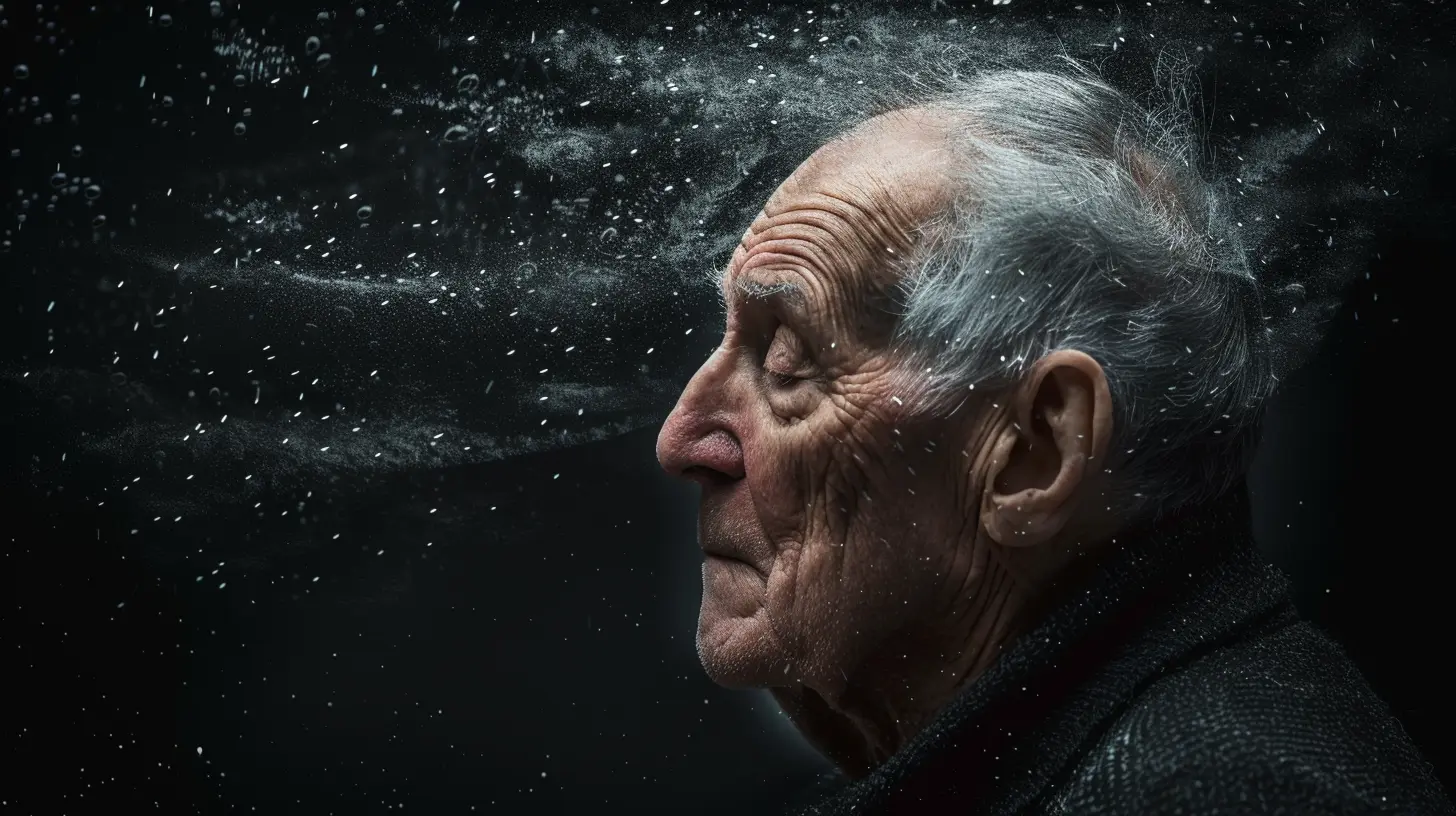Schizophrenia in Older Adults: Late-Onset and Special Considerations
24 June 2025
When most people hear the word "schizophrenia," they immediately think of young adults or middle-aged individuals. That’s understandable—after all, schizophrenia is commonly diagnosed in people during their late teens to early 30s. But here’s something that flies under the radar: older adults can develop schizophrenia too. Yep, it’s called late-onset schizophrenia, and it brings its own unique set of challenges.
So, if you're a caregiver, a mental health enthusiast, or someone curious about the psychological health of seniors, you're in the right place. Grab your coffee (or tea), and let's dive into this often-overlooked topic that deserves way more attention.
What Is Schizophrenia, Anyway?
Before we get into the nitty-gritty of how schizophrenia shows up in older adults, let’s lay the groundwork. Schizophrenia is a chronic mental health disorder that affects how a person thinks, feels, and behaves. It's not just about hearing voices or having delusions—though those can be part of it—it's a complex condition that can mess with everyday life in some serious ways.Symptoms typically fall into three categories:
- Positive symptoms: These include hallucinations, delusions, and disorganized thinking.
- Negative symptoms: Think lack of motivation, emotional flatness, or withdrawal.
- Cognitive symptoms: Memory problems, poor concentration, or difficulty in decision-making.
Now here’s the twist—when schizophrenia starts showing up later in life, the symptoms and impact can shift dramatically.
What Is Late-Onset Schizophrenia?
Late-onset schizophrenia refers to schizophrenia that first appears after the age of 40. When it hits after 60, it's often termed very late-onset schizophrenia-like psychosis (quite the mouthful, right?).But hold on—doesn’t schizophrenia usually show up earlier?
Yes, typically. But researchers and mental health professionals have recognized that older adults can and do experience the onset of psychotic symptoms for the first time later in life. And trust me, it's more common than you think.
Why Does Schizophrenia Show Up Later in Life?
Great question! The exact reasons aren't always clear, but several factors might be at play:- Biological and neurological changes that come with aging
- Hormonal shifts, especially in postmenopausal women
- Social isolation or trauma
- Genetic vulnerability that stays dormant until later in life
- Early, mild symptoms that were overlooked or misdiagnosed until they became more severe
Unlike early-onset schizophrenia, which is often heavily influenced by genetics, late-onset cases may be more linked to environmental stressors and neurodegeneration.
How Is It Different From Early-Onset Schizophrenia?
Let’s break it down. Late-onset schizophrenia can present differently compared to its early-onset sibling. Here’s a quick comparison:| Feature | Early-Onset | Late-Onset |
|--------|-------------|------------|
| Age of Onset | Teens to early 30s | After 40 (often 60+) |
| Gender | More common in men | More common in women |
| Symptoms | Severe delusions, hallucinations, disorganized speech | Mainly paranoid delusions, fewer negative symptoms |
| Cognitive Decline | Early and persistent | Later and sometimes milder |
| Social Functioning | Often impaired early | Can be preserved until later stages |
This difference matters. Why? Because recognizing the signs in older adults can be tricky, especially when these symptoms mimic things like dementia or depression.
Special Challenges in Diagnosing Older Adults
Let’s be real—diagnosing schizophrenia in seniors is no walk in the park. Here's why:1. Overlap With Other Conditions
Older adults are already more vulnerable to conditions like dementia, depression, and even bipolar disorder. These conditions can cause confusion, mood changes, and behavioral shifts, which can easily be confused with schizophrenia symptoms.2. Medication Side Effects
Many seniors are on multiple medications. Side effects from these drugs—especially those for high blood pressure, sleep disorders, or pain—can sometimes cause hallucinations or cognitive changes.3. Stigma and Ageism
Let’s not ignore the elephant in the room: ageism in healthcare. Older patients often get overlooked or have their concerns brushed off. What might be flagged as a serious mental health issue in a 25-year-old might be dismissed as "just old age" in a 70-year-old.The Role of Cognitive Decline
You might be wondering: “Isn’t it just dementia?” Fair point. Both schizophrenia and dementia can cause forgetfulness, mood changes, and confusion. But here's the kicker—schizophrenia doesn’t always cause progressive memory loss in older adults like dementia does.In fact, many people with late-onset schizophrenia stay mentally sharp in some areas, especially early on, which is why a correct diagnosis is crucial. Misdiagnosing schizophrenia as dementia can lead to the wrong treatment and make things worse over time.
Treatment Options for Late-Onset Schizophrenia
Just like early-onset schizophrenia, treatment is multi-faceted and often involves:1. Antipsychotic Medications
These are usually the first line of defense, but here’s the tricky part: older adults are more sensitive to medication side effects. That means lower doses and closer monitoring are essential. Atypical antipsychotics like risperidone or quetiapine are often preferred due to fewer side effects.2. Therapy and Support
Talk therapy, especially cognitive behavioral therapy (CBT), can help patients manage delusions and improve daily functioning. Support groups or even regular check-ins with a trusted therapist or case worker can make a world of difference.3. Social Engagement
Isolation can be both a symptom and a trigger. Community involvement, family support, and social activities can help reduce feelings of loneliness and offer a sense of normalcy.4. Healthy Lifestyle
Let’s not forget the basics: diet, exercise, sleep, and stress management. These play a huge role in improving symptoms and overall mental health.Caregiver Considerations
If you’re caring for a loved one with late-onset schizophrenia, you’re on the front lines—and that’s no small task.Here are a few tips:
- Stay informed: Learn about the condition, symptoms, and treatments.
- Be patient: Seniors may resist treatment or deny symptoms.
- Create routines: Predictability can help reduce anxiety and confusion.
- Seek support: Don’t try to do it all alone. Use community resources or caregiver support groups.
Your mental health matters too, so make sure to check in with yourself regularly.
Prognosis: What’s The Outlook?
Good news: The long-term outlook for late-onset schizophrenia is often more optimistic than early-onset cases. Why? Because many older adults with schizophrenia tend to have better premorbid functioning (they were doing fine before symptoms started) and milder symptoms overall.With the right treatment, many can maintain independence and live fulfilling lives. However, ongoing care, regular mental health monitoring, and community support are essential.
Let’s Talk About the Stigma
One of the hardest parts of schizophrenia—at any age—is the social stigma. For older adults, it’s a double whammy: stigma around mental illness, and stigma around aging.But here’s the deal. Mental illness doesn’t discriminate. It’s not a weakness. And whether you’re 25 or 75, you deserve compassion, treatment, and hope.
We need to break the silence. We need to talk about it more. Because understanding leads to empathy—and empathy can change lives.
Key Takeaways
Let’s wrap things up with a quick recap:- Schizophrenia in older adults is real, and it often shows up after age 40 (or 60 in very late-onset cases).
- Symptoms may be milder or different, often featuring paranoia and less disorganized thinking.
- It's harder to diagnose in older adults due to overlapping conditions and age-related complications.
- Treatment is possible and effective, especially when tailored to the unique needs of seniors.
- Caregivers play a vital role, and their support can significantly improve the patient’s quality of life.
So, the next time someone assumes schizophrenia is only a "young person's" disorder, you’ll know better—and hopefully, you’ll be able to educate others too.
Final Thoughts
Late-onset schizophrenia reminds us that mental health is lifelong. Just as our bodies change with age, so do our minds—and sometimes, that includes facing new mental health challenges. But with the right diagnosis, treatment, and support, older adults can continue to live meaningful, engaged lives.If you or a loved one is experiencing sudden changes in behavior, mood, or thinking later in life, don’t ignore it. Get it checked out. Because mental wellness doesn’t come with an expiration date.
all images in this post were generated using AI tools
Category:
SchizophreniaAuthor:

Alexandra Butler
Discussion
rate this article
2 comments
Darius McGlynn
The emergence of schizophrenia in older adults challenges our understanding of mental health, revealing the intricate interplay between aging and neurobiology. As we explore late-onset cases, we must consider the unique life experiences and stressors that shape their realities, advocating for compassionate, individualized care in addressing their complex needs.
September 12, 2025 at 3:26 AM

Alexandra Butler
Thank you for your insights! Indeed, understanding late-onset schizophrenia requires a nuanced approach that considers the unique experiences of older adults and the importance of tailored care. Your emphasis on compassion is crucial in addressing their complex needs.
Deborah Roberson
Thank you for shedding light on this important topic. Understanding late-onset schizophrenia in older adults is crucial, as it carries unique challenges that deserve our compassion and support.
June 30, 2025 at 2:29 AM

Alexandra Butler
Thank you for your thoughtful comment! I'm glad you found the topic important and appreciate your support for raising awareness about late-onset schizophrenia.


